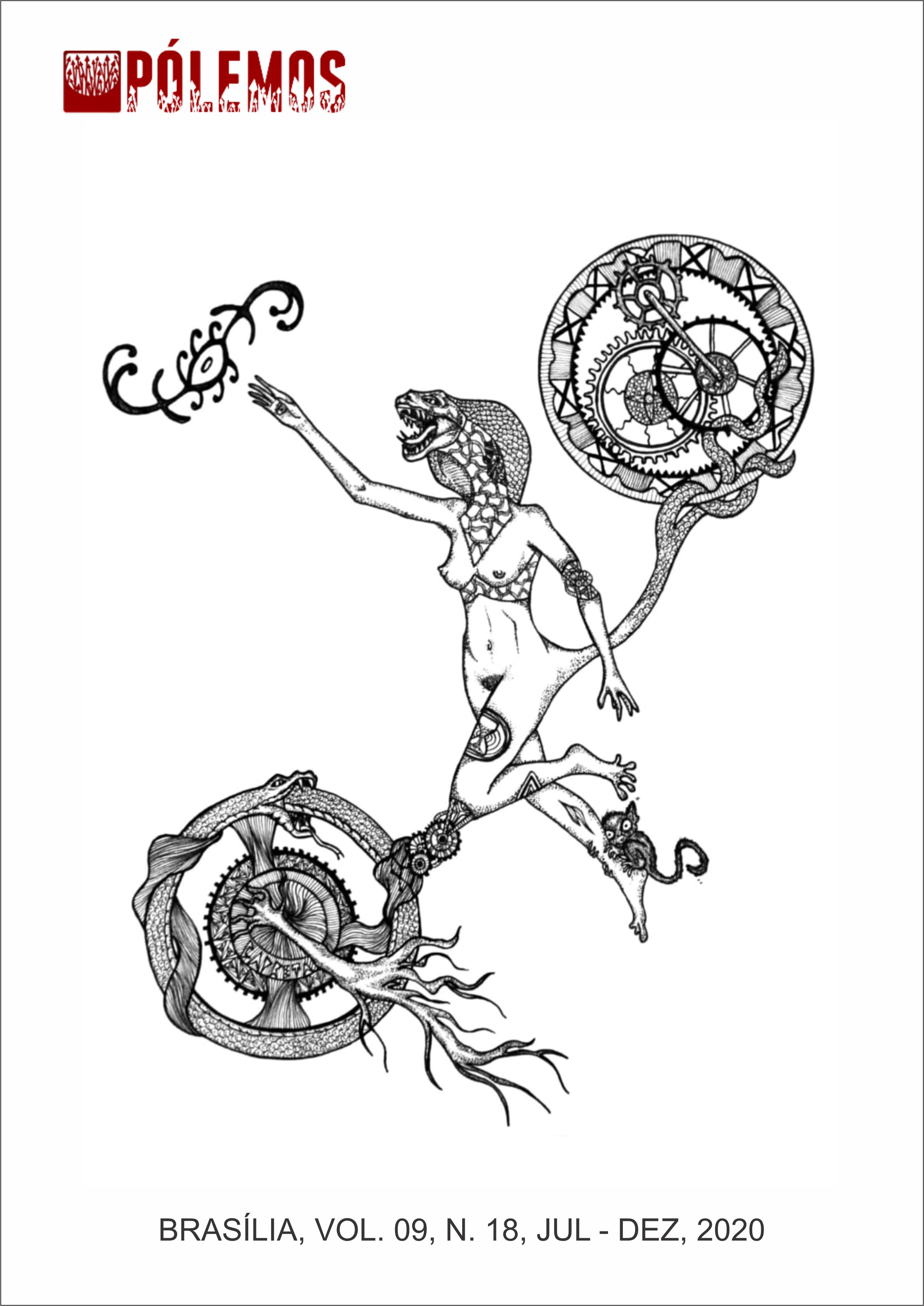A FORMAÇÃO E O FUNDAMENTO DA EPISTEMOLOGIA DE SCHOPENHAUER E SUA LEITURA DA CRÍTICA DA RAZÃO PURA DE KANT
DOI:
https://doi.org/10.26512/pl.v9i18.29580Parole chiave:
Epistemologia. Teoria do Conhecimento. Schopenhauer. Kant.Abstract
O presente artigo busca elucidar a epistemologia de Arthur Schopenhauer, aludindo principalmente à forma como este pensador utilizou-se da filosofia transcendental kantiana para desenvolver seu sistema filosófico. Assim aborda-se de maneira sistemática e crescente, concretizando os alicerces, delimitando conceitos e expandindo pouco a pouco o entendimento das características essenciais envoltas pelo tema, tendo por objetivo principal atingir um maior entendimento sobre os pontos centrais daquilo que Schopenhauer enxergava como os problemas da filosofia kantiana e que buscou superar e justificar em seus textos, sendo eles principalmente o problema da coisa em si e as noções de causalidade, tempo e espaço.
Downloads
Riferimenti bibliografici
ABBAGNANO, N. Dicionário de Filosofia. São Paulo: WMF Martins Fontes, 2012.
ARISTÓTELES. Órganon (Analíticos Posteriores). São Paulo: Edipro, 2016.
BARBOSA, J. Princípio de Razão e Conhecimento. Prefácio. In: SCHOPENHAUER, A. Metafísica do belo. São Paulo: UNESP, 2003.
DECOCK, Diana Chao; DEBONA, Vilmar. Manuscritos póstumos de Arthur Schopenhauer ”“ Volume I, Manuscritos Juvenis (Primeiros Manuscritos). Voluntas: Revista Internacional de Filosofia, [S.l.], v. 8, n. 1, p. 215-225, jun. 2017. ISSN 2179-3786. Disponível em: <https://periodicos.ufsm.br/voluntas/article/view/33771/18296>. Acesso em: 30março 2020.
DALBOSCO, C. A. O idealismo transcendental de Kant. Passo Fundo: Ediupf, 1997.
DELEUZE, G. A filosofia crítica de Kant. Belo Horizonte: Autêntica Editora, 2018.
FRAGOSO, F. O princípio de razão suficiente e suas raízes. Kalagatos, v. 12, n. 23, p. 197-224, 9 dez. 2016. Disponível em:
<https://kalagatos.com.br/index.php/kalagatos/article/view/52>. Acesso em: 21abril 2020.
GIACOIA JR, O; SILVA, G. V. Prefácio à edição brasileira. In: SCHOPENHAUER, A. Sobre a quadrúplice raiz do princípio de razão suficiente. São Paulo: UNICAMP, 2019.
HARTNACK, J. La teoría Del conocimiento de Kant, Madrid: Catedra, 2010.
HUME, D. Investigação sobre o entendimento humano e sobre os princípios da moral. São Paulo: UNESP, 2004.
KANT, I. Crítica da Razão Pura. Lisboa: Fundação Calouste Gulbenkian, 2001.
MORUJÃO, F. Nota In: KANT, I. Crítica da Razão Pura. Lisboa: Fundação Calouste Gulbenkian, 2001.
RAMALHO, et al. Os Fundamentos da Física. São Paulo: Moderna, 1978.
SAFRANSKI, R. Schopenhauer ”“ e os anos mais selvagens da filosofia. São Paulo: Geração Editorial, 2011.
SCHOPENHAUER, A. O mundo como vontade e como representação, Tomo I. São Paulo: UNESP, 2005.
______________________. O mundo como vontade e como representação, Tomo II. São Paulo: UNESP, 2015.
______________________. Sobre a quadrúplice raiz do princípio de razão suficiente. São Paulo: UNICAMP, 2019.
______________________. Sobre a vontade na natureza. Porto Alegre: LP&M POCKET, 2018.
SILVEIRA, Fernando Lang da. A teoria do conhecimento de Kant: o idealismo transcendental. Caderno Brasileiro de Ensino de Física, Florianópolis, p. 28-51, jan. 2002. ISSN 2175-7941. Disponível em:
<https://periodicos.ufsc.br/index.php/fisica/article/view/10053>. Acesso em: 22 abril 2020.
##submission.downloads##
Pubblicato
Come citare
Fascicolo
Sezione
Licenza
Copyright (c) 2020 PÓLEMOS ”“ Revista de Estudantes de Filosofia da Universidade de Brasília

Questo lavoro è fornito con la licenza Creative Commons Attribuzione - Non commerciale - Non opere derivate 4.0 Internazionale.
Todos os trabalhos que forem aceitos para publicação, após o devido processo avaliativo, serão publicados sob uma licença Creative Commons, na modalidade Attribution-NonCommercial-NoDerivatives 4.0 International Public License (CC BY-NC-ND 4.0). Esta licença permite que qualquer pessoa copie e distribua a obra total e derivadas criadas a partir dela, desde que seja dado crédito (atribuição) ao autor / Ã autora / aos autores / às autoras.


